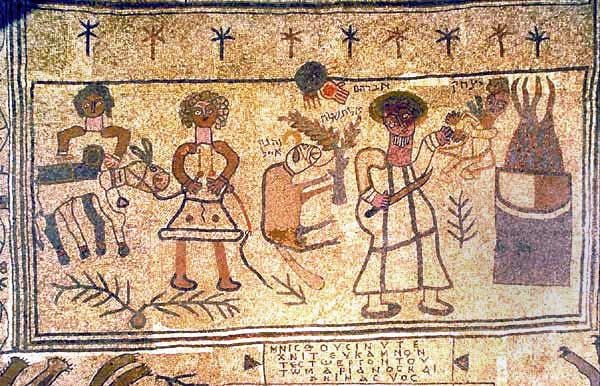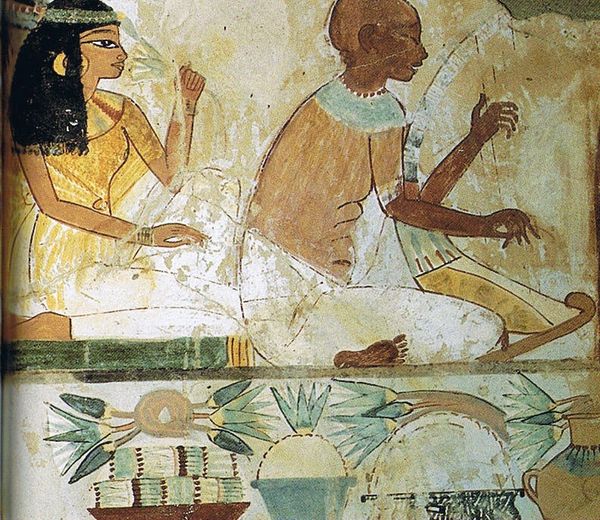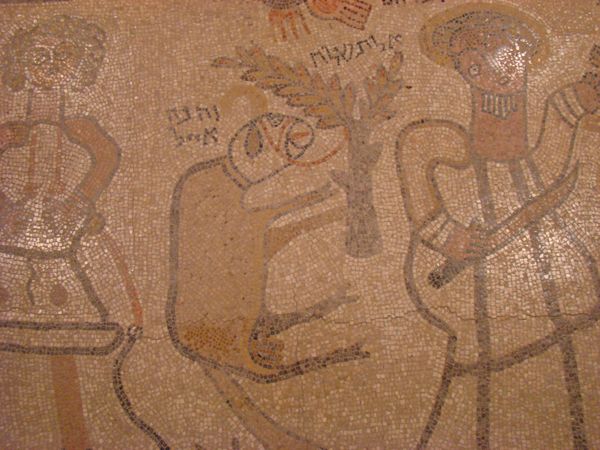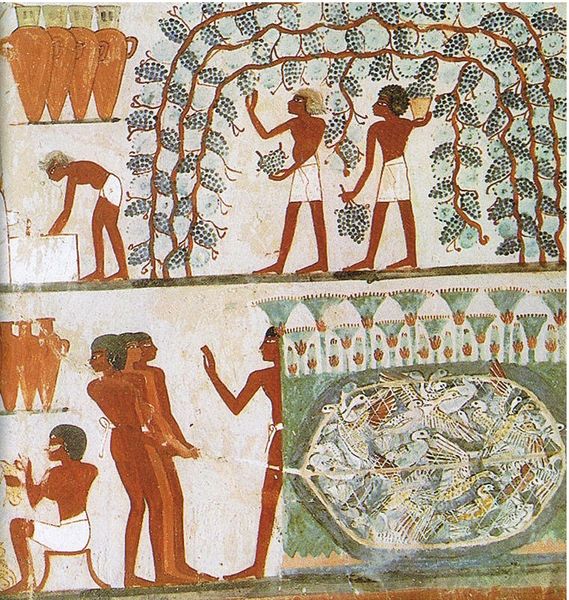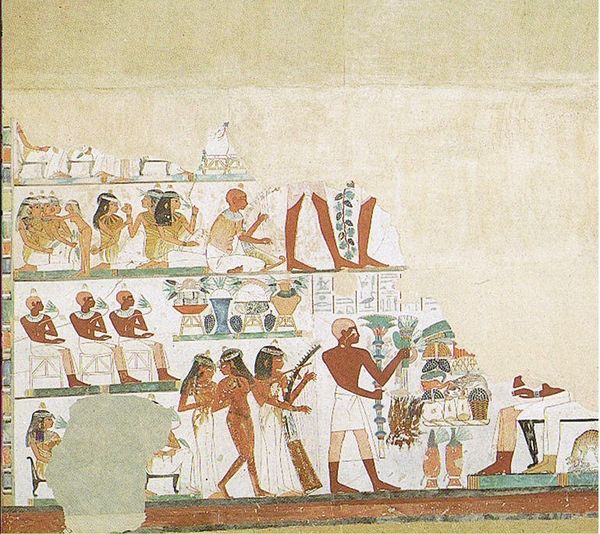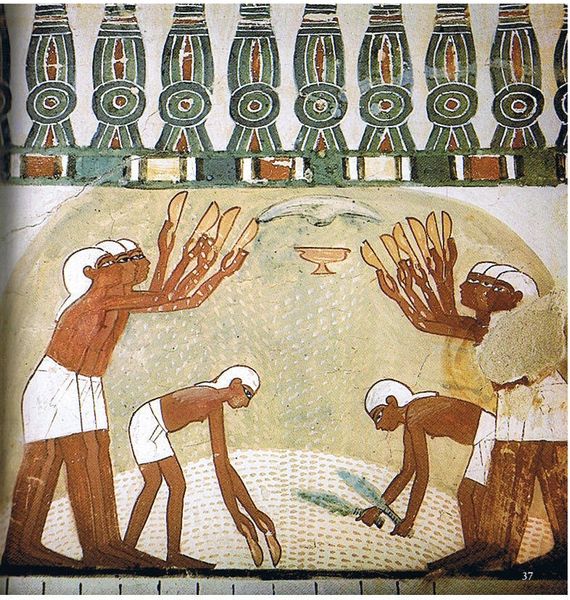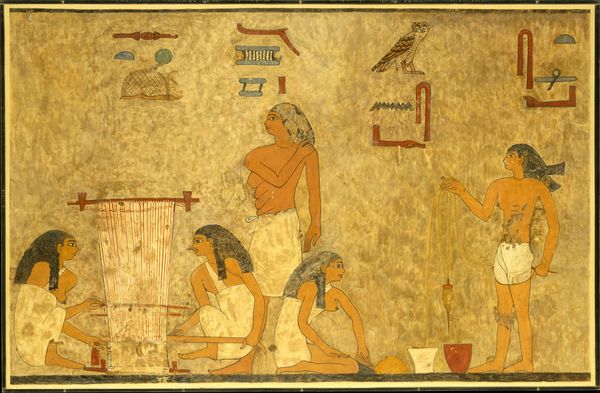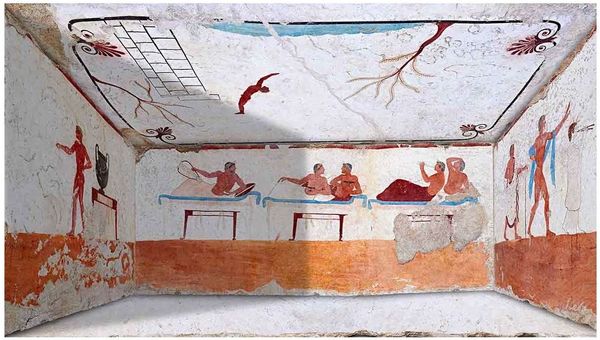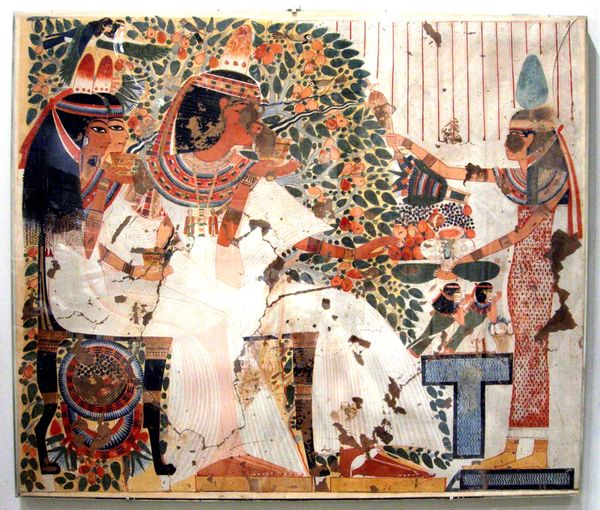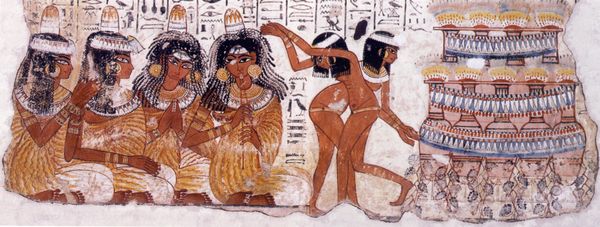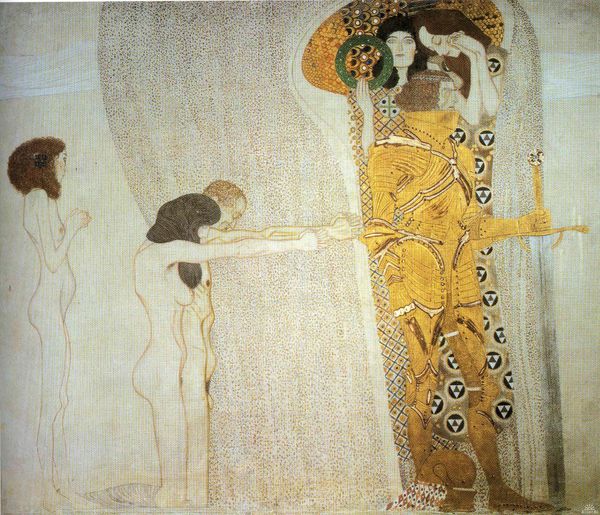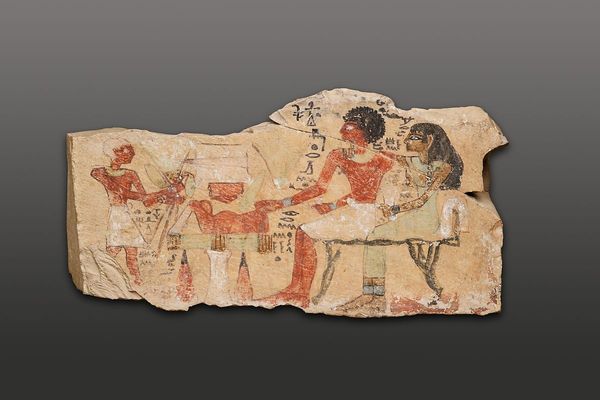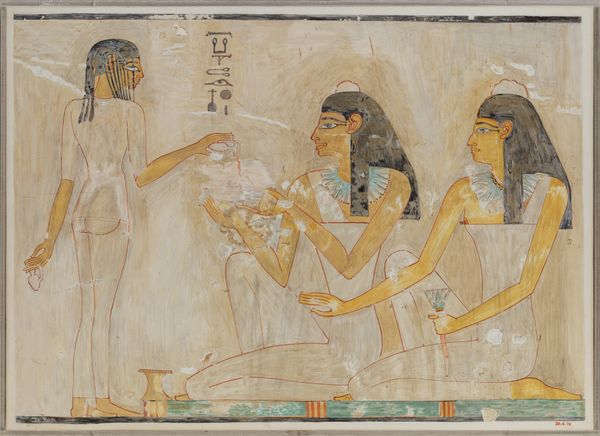
Pitsa Panel, Corinthia, Greece 540 BC
0:00
0:00
ancientgreekpaintingandsculpture
National Archaeological Museum, Athens, Greece
tempera, painting
#
portrait
#
tempera
#
painting
#
greek-and-roman-art
#
figuration
#
ancient-mediterranean
#
genre-painting
Copyright: Public domain
Editor: Here we have the Pitsa Panel from Corinthia, Greece, dating back to 540 BC. It's a tempera painting on wood. It seems almost like a snapshot of everyday life, but the figures are so stylized. What draws your eye when you look at this piece? Curator: The most compelling aspect is its articulation of space through a structured organization of figures. Notice how the overlapping and the subtle variations in scale create a sense of depth, despite the relative flatness of the figures themselves. The formal qualities of the Pitsa panel reflect an attempt to represent a procession or a series of events. Observe the palette used here: how does the earth-toned background contribute to the structure? Editor: It seems to create a sense of unity. So, it is almost like color helps hold together a composition that might otherwise feel disjointed because it’s a depiction of successive events? Curator: Precisely. Moreover, consider how the linear quality of the figures—created through bold, unwavering outlines—provides definition and emphasis within the picture plane. What about the geometric arrangement of forms - do you believe the combination creates an organized presentation of subject and content, or does it take away from that effect? Editor: I see what you mean. Initially, the rigid outlines felt a bit simplistic. But focusing on the spatial arrangement, the subtle variations become clearer. You have certainly shown me a new way to view ancient works! Curator: It highlights the essence of form, reminding us to see beyond representational likeness and appreciate the internal logic and formal architecture of art itself.
Comments
No comments
Be the first to comment and join the conversation on the ultimate creative platform.
